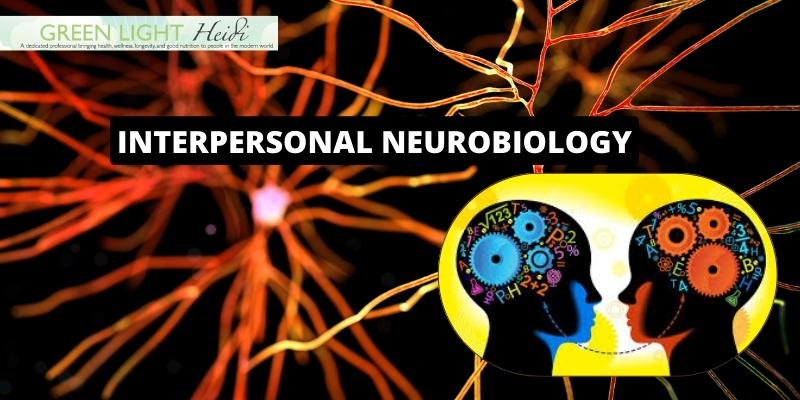What is Interpersonal Neurobiology used for?

IPNB or Interpersonal Neurobiology is the brainchild of Allan Schore and Dan Siegel. The concept of IPNB is based on the foundation of continuous growth of the brain. The technique of IPNB is used to stimulate the brain with positive and powerful persuasion to heal trauma. According to a recently published book called interpersonal neurobiology of play, this conceptcan help transform conditions which were once known to be permanent.
Essentially the concept of Interpersonal Neurobiology is an interdisciplinary area that involves several fields of science, including –biology, anthropology, mathematics, linguistics, psychology, and physics, to know more about human experiences from various angles. This article will cover A to Z of interpersonal neurobiological science and its applications for human beings. Read on to know the details.
The Concept of Interpersonal Neurobiology:
The effects of therapy on the human brain are explored through the applications of interpersonal neurobiology. The doctors can also understand the mechanism of the brain and the impact that life experiences have on our minds. Before the discovery of IPNB, experts claimed that neurological growth stops at the onset of adulthood.
However, as developed in some of the latest studies, Neuroplasticity claims that neurological links and the neurons keep on forming and evolving throughout a person’s life. This newer concept of brain development entirely backs the theories of interpersonal neurobiology and offers confirmation of its efficacy and validity.
A clearer understanding of how neurological links function and how they affect the human mind, spirit, and body will help the clinicians determine to rebuild and reconnect the links to create a healthier internal environment.
Applications of Interpersonal Neurobiology:
1. Neural Pathways using Meditation for Healing:
According to the tests conducted by medical science and clinical studies, meditation has proven to have healing powers on the physical as well as the emotional body of the human being while creating a sense of awareness and generating neural pathways. Through meditation, one can automatically shut their mind off and explore what is happening on the insides of their body. Also, Interpersonal Neurobiology is drawing from several fields to cure trauma, and the highest role here is played by mindfulness or meditation.
With continuous meditation and interpersonal neurobiology, a person becomes enlightened to ideas, behaviours, and thoughts that seemed hidden under layers. Several discoveries can be instilled in people’s minds through appropriate techniques and trigger their inner wisdom. For more information regarding the same, you can go through a book named “Interpersonal neurobiology of play.”
According to the theories of IPNB, the generation of these new patterns in the brains of an individual can affect the emotional, psychological, and physical aspects of human beings irrespective of their age. Also, with the advent of every new kind of behaviour, attitude, piece of knowledge or idea, a person’s brain is being physically influenced and reconstructed. And this helps the doctors in interfering with the minds of their patients to heal them emotionally.
2. Interpersonal Neurobiology healing trauma survivors:
All the psychotherapists and psychiatrists benefit extremely from the applications of interpersonal neurobiology in treating patients with PTSD (Post Traumatic Stress Disorder). As stated above, brain cells and neurological links can be constantly transformed throughout an individual’s life. A similar sense of persuasive science is being used to influence the minds of traumatized patients.
Using interpersonal neurobiology, scientists are exploring how the human mind grows and changes based on different relationships. When a person is in a positive relationship, it begets positive transformations in one’s mind that results in healing from the previously experienced trauma.
3. Integration of Interpersonal Neurobiology in the field of Finance:
The field of Finance requires a conceptual framework for the planners to enhance their clientele relationships, calm down their clients’ fears, and have a closer insight into their emotions, which will further lead them to make certain financial decisions while inculcating the well-being of their clients. In such a scenario, interpersonal neurobiology comes to aid the financial planners.
The process of INPB can help integrate psychological, physiological, cognitive, and emotional functioning, which can be effectively applied to the relationship of financial planners and facilitate the incorporation of behavioural changes.
Financial experts with the application of interpersonal neurobiology can understand their clients’ attitudes, know their decisions and motivations, and have an insight into their beliefs and financial behaviours. According to the latest studies, a financial planner must have high emotional intelligence and a clearer understanding of the human element.
These requirements in the finance field have given rise to a more holistic approach to enhancing a client’s experience, creating consistency in the clients’ values and beliefs, and catering to their behaviour. The retention of a client will solely depend on the financial planner’s capability to enhance their self-consciousness and foster deep interpersonal relationships.
Conclusion:
Initially, science rejected the notion of relationships changing the brain’s neurological and structural aspects. However, this view, now known as interpersonal neurobiology, is being deeply accepted and applied in various fields to benefit humankind. The concept of IPNB can be used in validating and deepening the therapeutic interventions and conceptualizations.
Green Light Heidi is here to assist you throughout the process if you wish to embark on your journey with interpersonal neurobiology. Our focus is on the regulation of the nervous system through altering unique issues faced by our clients. Our platform will assist you in altering your brain’s condition by bringing in changes in your mind. For further queries or to secure an appointment, reach out to us via mail at [email protected]

Comments